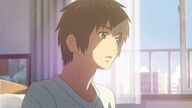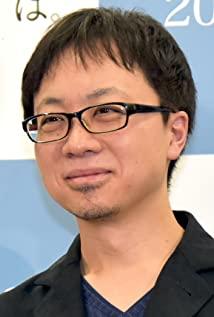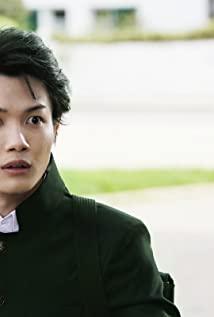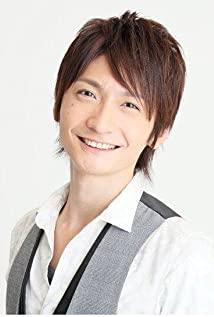I really like a word in Japanese - せつない translated into Chinese means "light sorrow", probably this is the reason why I always love Makoto Shinkai. No matter the voice of the stars, the second 5, the garden of words, without exception, it is not a big reunion. ending. The Garden of Words left a seemingly bad ending, but looking at Mr. Xiaoxue's performance in this work - he was transferred to a small mountain village, and if nothing else happened, he would be killed by a comet. It is difficult to say that the two people who are in love with teachers and students have come to the end. Maybe many people don't like this ending and call it a bad ending, but I think it should be called true The ending is right—— How can the love of primary school students come to the end? How can teacher-student love go smoothly? Travel across the galaxy to war and come back alive to get married? Even the interstellar crossing next door didn't do this, so consider it with a realistic eye. In fact, this ending is very normal, but everyone didn't write it out naked, but Makoto Shinkai wrote it. Looking at the atmosphere of these works, there are not many grand scenes, bloody words, just the falling raindrops or the slightest sunlight seeping through the clouds, accompanied by an action and a look in the soundtrack. The ending is also heart-wrenching. So for me, Makoto Shinkai is a person who exudes a touch of sadness, and Makoto Shinkai's ending is the せつない ending. Let's take a look at the plot of "The Name of the King" this time. The plot is indeed a lot fuller. The Japanese media said that "I don't feel bored for a second". But because of this, compared to the previous works, the description of the characters' inner entanglement has been greatly compressed. It makes people feel that the process of the protagonist changing from a senior who likes to work to a heroine is too sudden. (I thought he just wanted to save the heroine until he wrote his confession on the palm of his hand.) Then there is the atmosphere of this work, which is full of comedy elements from the beginning, and the soundtrack is also a cheerful rhythm. I once forgot that this was I'm watching Makoto Shinkai, not some other animated theatrical version. The finale, Tokyo, the tram, the cherry blossom season, plus two passing by, makes people think of the second 5, but it always feels different, more than the sigh of "Alas, this is the reality." What's more, "Damn he (she) is there! Come back!" This kind of anxiety. And then finally, unlike Takaki and Akari, they turned around. HE appeared for the first time in Makoto Shinkai's works, and some comments said that he finally surpassed himself, maybe that's right? Maybe Xin Haicheng was immersed in loneliness or lovelorn (I guess) before he wrote such a sadistic work, but now he is full of money and graduated from secondary school, and began to think that it is better to bring more sorrow to the world than to bring more. A little bit of fun, so I just started writing HE, right? On the other hand, unlike in the past, "The Name of the King" was released in 85 countries (regions), and the battle was like a Hollywood blockbuster. Perhaps it is precisely because the audience has become wider that the slow narrative and the too slender ending of the past have been abandoned. Although I don't know when the next work will come out, I don't know what the content will be. But Makoto Shinkai, who has tasted the sweetness in "The Name of the King", will show his past faint sorrow to the world again? If not, this work is a symbol of Shinkai Makoto becoming a new generation of animation masters, and also a symbol of Shinkai Makoto's unique style. disappearance of the grid. Well, there's nothing wrong with it, the reality is already so difficult, so don't dismantle it in the movie. ————2016.12.5 Editing dividing line———— PS. The above-mentioned teacher Xiaoxue will be killed because the Garden of Words finally said that she was transferred, so I thought it was something later. However, there are some remarks saying that the time of this work is earlier than the Garden of Words, and it is not clear what the real setting is. In addition, according to an interview with Xin Hai himself, he did not write tragedies because he was dumped, he simply wrote tragedies because he liked tragedies. This time he did not say why he wrote HE, but he revealed that he wanted to be a "man, woman, age, and child." Want to see and accept" movie.
From various interviews, we can feel that Xinhai is still the same Xinhai, still a troubled literary youth. As for whether he will write about tragedies in the future, that is another matter. It is hereby stated that the above.
View more about Your Name. reviews











